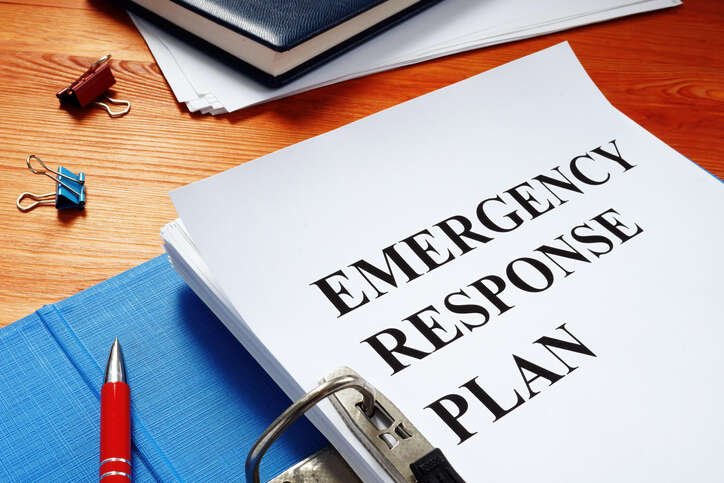The three P’s of preparedness: A blueprint for crisis management planning


By Daniel Kilburn, Founder of Emergency Action Planning LLC
In the unpredictable and fast-paced world of business and life, a crisis, an emergency, or disaster can strike at any moment, disrupting operations, endangering employees, and threatening financial stability. In this article, we will explore the three P’s of Preparedness – Planning, Playfulness, and Perseverance – and understand their significance in crafting effective strategies for emergency preparedness.
Crisis Management, or Emergency Action Planning is the art of responding to emergency events while mitigating the negative impact on a company’s reputation, operations, and financial standing. A well-prepared organization can turn a crisis into an opportunity for growth and resilience. Let’s consider the possibility of a mid-size IT services company that faced a massive cyber-attack, compromising sensitive customer data and crippling their IT infrastructure.
Despite the unforeseeable nature of the attack, the company’s crisis management team had a robust emergency plan in place. This plan outlines a clear chain of command, designated communication channels, and preplanned roles and responsibilities for each team member. Thanks to their swift response and well-rehearsed actions, they were able to successfully restore their systems and communicate transparently with their customers, earning their trust. As a result, the company not only recovered quickly but also enhanced its cybersecurity measures to prevent future attacks. This result will only be possible if a plan is in place, practiced, and activated.
What story would you like to hear about your company after an emergency or disaster strikes?
A vital part of crisis preparedness is planning. Develop a comprehensive emergency action plan tailored to your company’s defined risks and needs. Identify potential threats, such as natural disasters, man-made disasters, medical emergencies, economic downturns, and service or supplier disruption. Outline specific actions for each scenario. Include evacuation procedures, communication protocols, and strategies for ensuring the safety and well-being of employees and stakeholders. Planning needs to be at the forefront of risk management for any company, not an afterthought.
The concept of playfulness may seem unconventional in the context of crisis management, but it refers to the ability to approach challenges with creativity and adaptability. Encourage your team to think outside the box, brainstorm innovative solutions, and maintain a positive mindset during trying times. Instead of trying to make a plan perfect, try to break it first. Having fun at something impacts the information retention rate and ability to follow through. Embracing playfulness allows companies to explore unconventional strategies that could lead to unexpected benefits.
Resilience in the face of adversity is a hallmark of successful crisis management. Perseverance involves staying committed to your long-term goals, despite the challenges and setbacks you may encounter. Stand by your values, communicate openly with employees and stakeholders, and demonstrate unwavering determination to weather the storm.
As a business executive, parent, or team member, you are responsible for your outcomes 100% of the time. Often, we are derailed by the demands of life. It is crucial to remain committed to developing your crisis management plan before you need it.
Creating a culture of preparedness in your organization is instrumental in ensuring that crisis management strategies are ingrained in every level of your company. Encourage active participation in emergency drills and exercises to familiarize employees with protocols and promote a sense of collective responsibility. The ability to think in a risk-averse way in events other than finance will have benefits not only for your business and will benefit your employees long after they leave work for the day.
Effective communication is paramount in crisis management. Establish clear lines of communication within your organization, ensuring that all employees are well-informed and able to disseminate critical information to the relevant parties promptly.
Everyone has a Plan A: But what about Plan B, C, or D? Backup plans act as a safety net, providing alternative responses to potential crises. Develop plans that cater to various scenarios and designate responsible personnel to implement them promptly. Regularly update these plans to reflect changes in your business and external environment.
As we have explored the three P’s of Preparedness – Planning, Playfulness, and Perseverance – we can see their decisive role in building resilient businesses, and individuals capable of weathering any storm. Crisis management plays a critical role in preserving a company’s reputation, financial stability, stakeholder confidence, and employee satisfaction. By embracing the principles of preparedness, fostering a culture of readiness, and refining communication and contingency plans, businesses can emerge from crises not only unscathed but also stronger and more adaptable than before. The decision is yours, natural disasters, pandemics, economic downturns, and service or supplier disruption are only events. How you decide to react to these events can become the crisis.
Until next time, stay informed, and stay safe.
Crisis management is the process of preparing for, responding to, and recovering from emergency situations that could negatively impact an organization's operations and reputation.
An emergency action plan is a documented strategy outlining how an organization will respond to various emergency situations, including roles, responsibilities, and communication protocols.
Preparedness in business refers to the proactive measures taken to ensure that an organization can effectively respond to and recover from unexpected crises or emergencies.
Effective communication in crisis management ensures that all stakeholders are informed, which helps to maintain trust and facilitate a coordinated response during emergencies.
Contingency planning involves creating backup plans to address potential crises, ensuring that an organization can respond quickly and effectively to unforeseen events.
Explore more articles in the Business category











